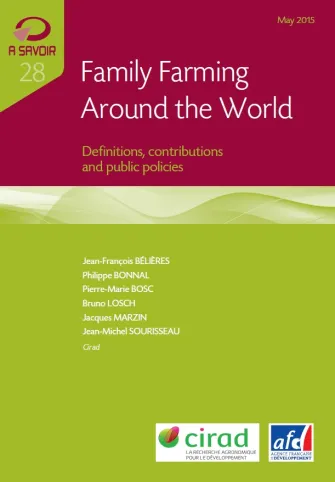Share the page
Family Farming Around the World: Definitions, contributions and public policies
Published on

Family farms are central to both contemporary changes and contradictions in agriculture. They have been, and are still, the crucible for a whole host of agricultural innovations and major revolutions. They form the social basis of most Southern countries and contribute to supplying their local, national and international markets. Paradoxically, however, they constitute the vast majority of poor rural households which are also in a situation of food insecurity worldwide. They sometimes operate using specialised, and highly artificialised, intensified models (agrochemicals and mechanisation). In this respect, they do not escape the questions and criticism directed to agriculture and its capacity to meet the contemporary and widely globalised challenges of climate change, food security, the increasing scarcity of fossil fuels, and the prevention of emerging diseases. But family farms also provide alternative production models to conventional intensification – sustainable agriculture models or new energy sources – which differentiates them from corporate farms and can bring solutions to the world’s food, social and environmental challenges.
Useful Information
-
Authors
-
Bruno LOSCH, Jacques MARZIN, Jean-François BELIERES, Jean-Michel SOURISSEAU, Philippe BONNAL, Pierre-Marie BOSC
-
Coordinators
-
Marie-Cécile THIRION, Pierre-Marie BOSC
-
Edition
-
28
-
Number of pages
-
200
-
ISSN
-
2105-553X
-
Collection
-
To Know
-
Other languages
